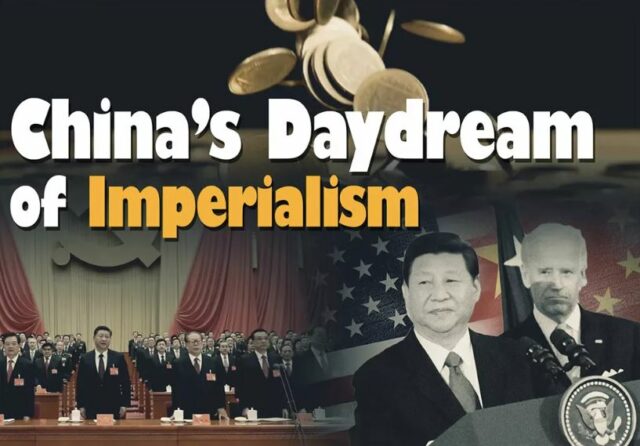
ISKP’s Evolving Propaganda Against Chinese Imperialism
Publication: Terrorism Monitor Volume: 20 Issue: 22
By:

Following trends of heightened U.S-China great power competition, the narratives of global jihadist groups are morphing simultaneously. After 9/11, the U.S was at the receiving end of al-Qaeda and the Islamic State (IS)’s propaganda. However, in the context of the U.S-China global rivalry, the Islamic State in Khorasan Province (ISKP) is increasing its focus on Beijing and even going so far as to move beyond the routine anti-China critique. Unlike its ideological critique of China’s repression of the Uyghur Muslim community in China’s western Xinjiang province, ISKP has now turned its attention to political and economic criticism of Chinese “imperialism” (Voice of Khorasan, September 2). This is a reference to Beijing’s ambitious Belt and Road Initiative (BRI), which aims to connect Asia with Europe and Africa (China Daily, May 10, 2017).
ISKP’s Magazine and China
The September issue of ISKP’s monthly English-language propaganda magazine, Voice of Khorasan, published an article titled “China’s Daydream of Imperialism,” which focused on Beijing’s growing global economic footprint (Voice of Khorasan, September 2). ISKP believes that the global rivalries of the U.S with China regarding Taiwan and with Russia regarding Ukraine can pave the way for the rise of Islamic State (IS)’s self-styled global Sunni Caliphate. In the article, ISKP, for example, maintains that unlike the U.S, which accumulated global influence through its political and military prowess, China is using its economic resources to spread its global influence. ISKP compares China’s BRI with British imperialism, which spread in the Indian Subcontinent through the infamous East India Company (Global Times, October 26).
In the article, ISKP also contends that China’s rise as a global power will be short-lived because it lacks a decisive military or technological edge over the West. Rather than comparing China to the West’s multi-century dominance, ISKP states China’s rise to the global prominence will be like the 13th Century Mongols’ Silk Road-based empire, which lasted for a relatively short time of slightly more than 100 years. (Voice of Khorasan, September 2). Further, the article cites recent examples of Chinese companies’ closure in Mozambique due to IS-affiliated jihadists’ threats (fides.org, June 23). ISKP’s threats to China are not empty. In 2017, the group abducted and killed a Chinese couple in Pakistan’s southwestern Baluchistan province, where the multi-billion-dollar mega infrastructure project, the China Pakistan Economic Corridor (CPEC) is located (Dawn, October 30, 2017).
China in the ISKP-Taliban Rivalry
Since the Taliban’s return to power in Afghanistan in August 2021, ISKP has emerged as the main anti-China jihadist group in the country (Terrorism Monitor, June 16). ISKP’s ant-China propaganda initially focused on an ideological critique of Uyghur oppression in Xinjiang, but is now expanding to a critique of China’s expanding economic footprint. This change has two key purposes. First, ISKP, and by extension IS, is already positioning itself to stay relevant with changing global geopolitical trends and to exploit the possible openings that such narratives will offer. Second, ISKP seeks to poach disgruntled Uyghur militants from the Turkistan Islamic Party (TIP) in Afghanistan into its fold, especially as both the Taliban and al-Qaeda are silent on China’s human rights violations in Xinjiang province (Terrorism Monitor, December 16, 2021). In doing so, ISKP is, therefore, also trying to create a rift between the Taliban’s de-facto regime in Afghanistan and TIP.
Soon after assuming power in Afghanistan, the Taliban relocated TIP militants from northern Badakhshan province near the China-Afghanistan border to central Afghanistan to address China’s security concerns (Gandhara, October 4, 2021). Some TIP militants who were angry with the Taliban’s ignorance toward Chinese repression returned to Badakhshan this year and recreated their sanctuaries. To exploit strained ties between the Taliban and TIP, an ISKP delegation reportedly met with TIP operatives and managed to win over the loyalties of around 50 Uyghur militants. The ISKP suicide bomber Muhammad al-Uyghuri, who targeted a Shia Mosque last October in northern Afghanistan’s Kunduz province, for example, was a former TIP militant (Tolo News, October 15, 2021). ISKP used this ethnic Uyghur suicide bomber to showcase that it has successfully recruited Uyghur militants in Afghanistan. While claiming responsibility for that attack, ISKP also maintained that the attack was against the Shia community and the Taliban regime for expelling Uyghurs on China’s demand (Pak Institute for Peace Studies, September 29). In sum, the more the Taliban restrict TIP militants to accord with China’s demands and the longer ISKP continues to exploit China’s treatment of the Uyghurs, the higher the chances are of TIP militants gravitating towards ISKP.
Conclusion
As the U.S-China global rivalry intensifies, Beijing will feature more prominently in global jihadist propaganda. ISKP needs an arch-nemesis to justify its violence and fuel its recruitment and fundraising campaigns. For the last three decades, U.S interventions in Iraq and Afghanistan were the driving factors behind global jihadist groups’ propaganda and narratives. In the era of great power competition, Chinese “imperialism” through the BRI is now becoming the focus of groups like ISKP.




